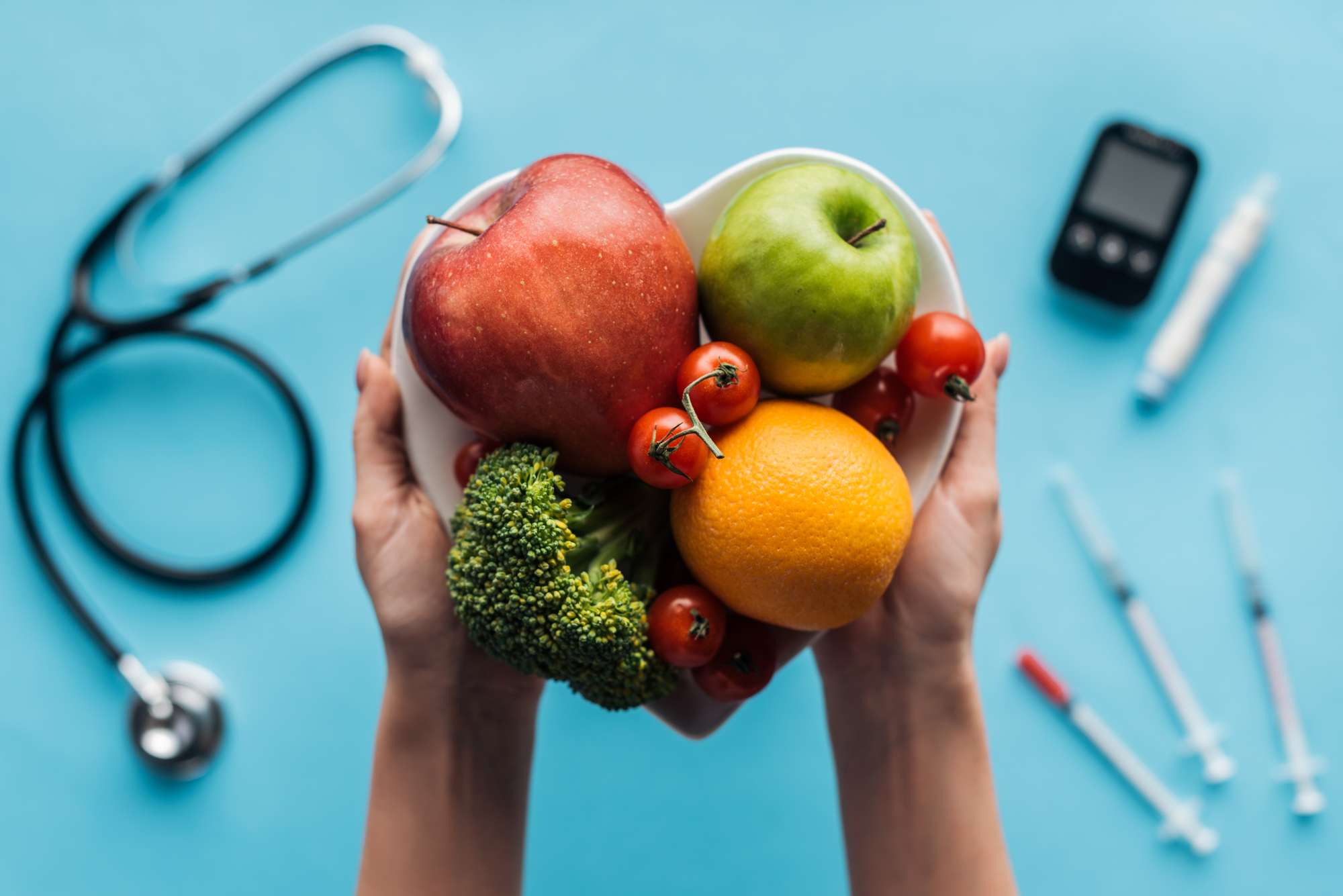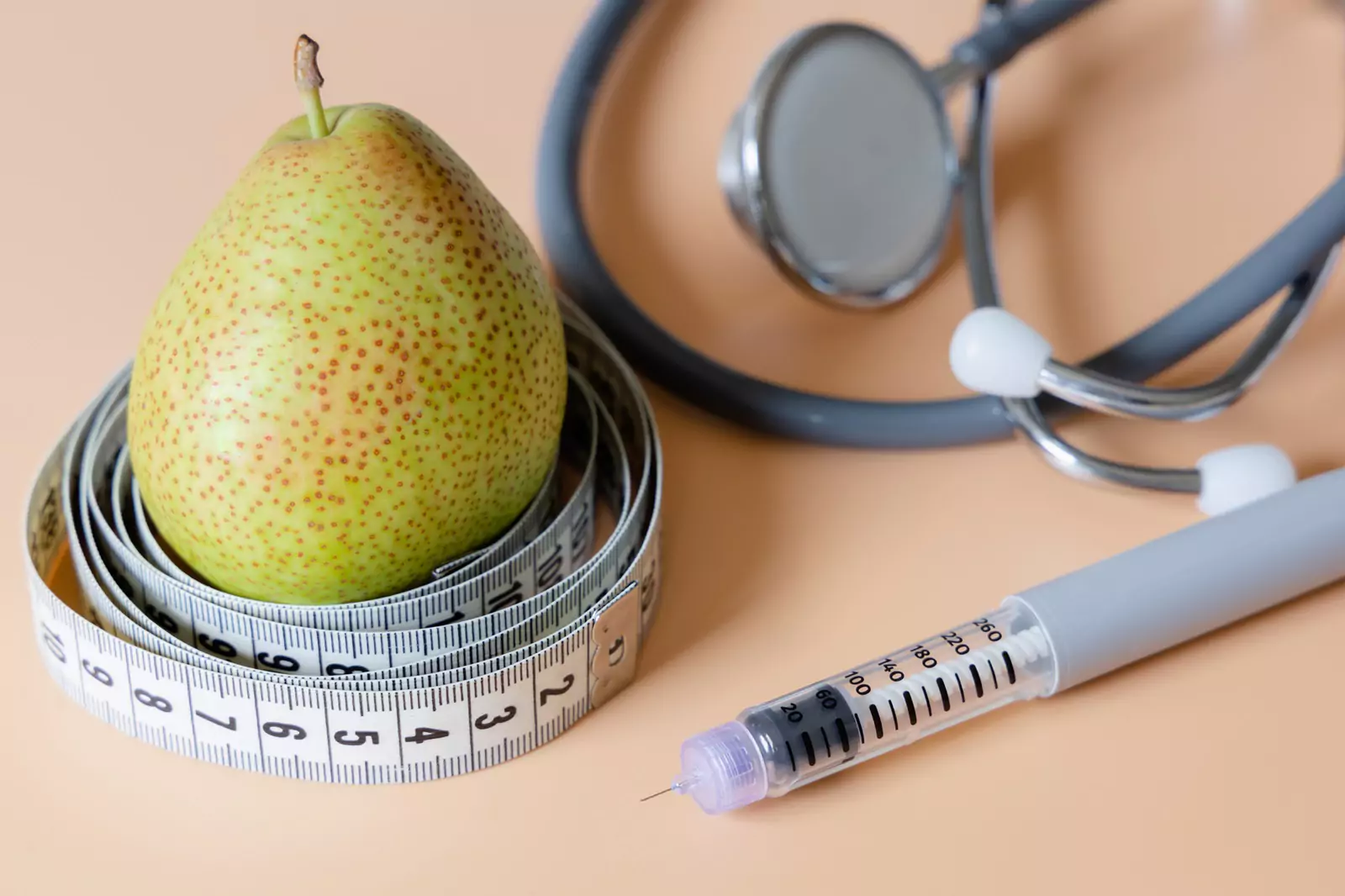
UP TO 40% OFF SITEWIDE






Harmful Foods Diabetics Should Avoid


Table of Contents
- White Carbohydrates
- The Impact of White Carbs on Blood Sugar Levels
- The Caloric Cost of White Carbs
- Transitioning to Healthier Carbohydrates
- Processed Meats in a Diabetic Diet
- A Close Look at Processed Meats
- Understanding the Risks
- Healthier Protein Choices
- Moving Towards Healthier Meals
- Dangers of Sweetened Cereals
- Insulin and Blood Sugar Spikes
- The Caloric Trap
- Healthy Cereal Alternatives
- The Hidden Perils of French Fries
- The Unhealthy Reality of French Fries
- The Carbohydrate Conundrum
- Choosing Healthier Alternatives
- The Sugary Foods Dilemma
- The Temptation of Sugary Foods
- The Dangerous Impact of Sugar on Blood Glucose Levels
- Sweet Indulgence: A Risky Affair
- Healthy Alternatives: Turning the Tables on the Sweet Tooth
- Sweetness Beyond Sugar: Navigating the Road of Diabetes Management
- Processed Baked Goods and Packaged Snacks for Diabetics
- What Makes Processed Baked Goods and Packaged Snacks Dangerous?
- Making the Switch to Healthier Snacks
- The Hidden Threat in Popular Foods
- Embracing Healthier Choices: Avocados and Almonds
- About The Author
Welcome, diabetes champions! In this comprehensive guide, we delve into the unhealthy foods that many of us with diabetes can't seem to shake off. As we all strive to keep our blood sugar levels stable, it's time we replace those harmful foods diabetics should avoid. By making wiser food choices, we stand a chance of keeping diabetes in check. Let's dive in!
White Carbohydrates
For those living with diabetes, the importance of monitoring food intake cannot be overstated. One food group, in particular, that can pose a significant risk is white carbohydrates. Despite being a common staple in many diets, white carbs can have detrimental effects on your health, particularly if you have diabetes.
White carbs come in several forms, some of which include regular pasta, rice, white bread, muffins, and chips. These are foods that we consume daily, often without much thought. However, they are also foods that offer little nutritional value, yet can significantly raise your blood sugar level.
The Impact of White Carbs on Blood Sugar Levels
The high glycemic index of white carbs means they are quickly digested and absorbed into the bloodstream, leading to rapid and significant rises in blood sugar levels. For individuals with diabetes, who already struggle with controlling blood sugar levels, this can be a serious problem. Frequent consumption of white carbs can cause consistent blood sugar spikes, putting extra stress on the body's insulin-producing cells and potentially worsening diabetes over time.
The Caloric Cost of White Carbs
Besides the blood sugar spike, white carbs also come with a high caloric cost. Foods like white bread, pasta, and muffins are often high in calories. Regularly consuming these foods without adequate physical activity can lead to a caloric surplus, resulting in unwanted weight gain. This is particularly problematic for individuals with diabetes as excess weight has been linked with insulin resistance, making it more difficult to control blood sugar levels.
Transitioning to Healthier Carbohydrates
The issues presented by white carbs highlight the importance of seeking healthier alternatives. Transitioning to healthier carbohydrates is a crucial step in managing diabetes and improving overall health. Options like quinoa and brown rice can provide the energy you need without the negative impact on blood sugar levels.
Quinoa, a grain crop renowned for its edible seeds, is a fantastic substitute for regular pasta or rice. It's a complete protein, packed with all the essential amino acids our body needs. Quinoa is also rich in fiber, which slows the rate of digestion and prevents the sudden spikes in blood sugar associated with white carbs. Brown rice is another excellent alternative.
Unlike white rice, brown rice is a whole grain. This means it retains its bran layer, which is rich in dietary fiber. As a result, brown rice has a lower glycemic index than white rice and doesn't lead to rapid increases in blood sugar levels.
Processed Meats in a Diabetic Diet
In the pursuit of convenience and rich flavors, processed meats often take center stage in our meals. Regrettably, while these foods might offer a quick protein fix, they pose significant health risks, especially for individuals living with diabetes. We frequently find ourselves reaching for the bacon, salami, ham, or beef – but these processed delights could be more harmful than we realize.
A Close Look at Processed Meats
When we talk about processed meats, we're referring to meats that have been transformed through salting, curing, fermentation, smoking, or other methods to enhance flavor or improve preservation. Examples abound in our grocery stores and include favorites like bacon, ham, sausages, salami, and corned beef.
Many people appreciate these meats for their unique flavors and the convenience they bring to meal preparation. However, it's vital to understand that these so-called "protein fixes" contain an array of chemicals that not only exacerbate diabetes but also contribute to other severe conditions, including heart disease and cancer.
Understanding the Risks
What makes these processed meats so dangerous? They are loaded with sodium and nitrates, which serve to extend shelf life and enhance the food's color. Sodium, in high amounts, can lead to high blood pressure—a risk factor for heart disease. On the other hand, nitrates can convert to nitrites, then to nitrosamines, some of which are known carcinogens.
Processed meats are also generally high in saturated fats. This attribute is particularly harmful to people living with diabetes since excessive saturated fats can increase cholesterol levels, leading to heart disease. Furthermore, these fats can lead to weight gain, a known risk factor for type 2 diabetes.
Furthermore, processed meats often have a high glycemic index (GI). Foods with a high GI rapidly spike blood sugar levels, creating an additional burden for individuals with diabetes who are trying to manage their blood sugar levels effectively.
Healthier Protein Choices
Understanding these risks, the next step is making healthier food choices. This decision doesn't mean you have to eliminate all meats from your diet. Instead, it's about choosing leaner proteins that provide the nutrition you need without the added health risks. Chicken, especially the breast part, is a great example.
It's low in fat and high in protein, making it a much healthier alternative to processed meats. Boiled eggs are another excellent protein source. They're rich in essential vitamins and minerals and have a relatively low GI, making them suitable for a diabetic diet. Other lean proteins that can safely find their way into your meals include fish, such as salmon and mackerel, tofu, and legumes.
Moving Towards Healthier Meals
Making the shift away from processed meats and toward leaner proteins is a significant step in managing diabetes and improving overall health. This change might seem daunting at first, but remember, every healthier food choice is a victory on your journey as a diabetes champion.
Dangers of Sweetened Cereals
A common morning ritual for many individuals around the world is indulging in a bowl of their favorite cereal. It's quick, easy, and often, quite satisfying. However, if you're living with diabetes, the cereals lining your supermarket shelves may pose more of a threat than you think. Many of these cereals are laced with added sugars, leading to potential health hazards such as rapid insulin and blood sugar spikes.
Additionally, the high-calorie content in these sugary cereals could contribute to unwanted weight gain. To combat these potential threats while still fulfilling your cereal craving, consider healthier alternatives such as oatmeal or homemade granola.
Insulin and Blood Sugar Spikes
Most store-bought cereals are not just sweet in taste but also high in processed carbohydrates. When you consume these cereals, your body breaks down the carbohydrates into glucose, causing an immediate surge in your blood sugar levels.
For those living with diabetes, this surge can be problematic as their bodies struggle to produce enough insulin to manage this sudden influx of glucose. Over time, repeated spikes in blood sugar levels can worsen diabetic conditions, potentially leading to severe health complications like kidney damage, heart disease, and nerve damage.
The Caloric Trap
Another concerning aspect of sweetened cereals is their high-calorie content. While it's true that our bodies need calories for energy, the ones provided by these cereals come with little to no nutritional value. Additionally, since they do not provide long-lasting satiety, they may lead to overeating, contributing to an increased calorie intake and subsequently, weight gain. This weight gain, in turn, can lead to obesity, which is a significant risk factor for type 2 diabetes.
Healthy Cereal Alternatives
But what if you're a cereal lover who simply can't part ways with your morning bowl? Don't worry; there's no need to give up your beloved breakfast ritual. There are healthier alternatives out there that can provide the same convenience and satisfaction as sweetened cereals without posing a health risk.
Oatmeal, for instance, is an excellent choice. Oats are rich in fiber and provide slow-releasing carbohydrates, meaning they won't spike your blood sugar levels the way sweetened cereals do. Moreover, oats are filling, which helps curb overeating and can assist with weight management. To add a touch of sweetness to your oatmeal without the sugar, consider adding fresh fruits or a small amount of honey.
Homemade granola is another fantastic cereal alternative. You can make granola using rolled oats, nuts, seeds, and a touch of honey or pure maple syrup for sweetness. By making your own granola, you can control the ingredients, keeping the sugar levels low while adding beneficial components like fiber and healthy fats.
The Hidden Perils of French Fries
In today's fast-paced world, convenience often dictates our food choices. Among the many quick fixes we turn to, French fries stand out as a universally beloved snack. Their golden, crispy exterior encasing a soft, fluffy interior can be difficult to resist. Yet, for people with diabetes, indulging in this common guilty pleasure poses serious health risks. Let's delve deeper into why these deep-fried delights are a potential minefield and how we can navigate around our cravings healthily.
The Unhealthy Reality of French Fries
The appeal of French fries lies in their simplicity. Potatoes, oil, and salt - three basic ingredients culminate in a comfort food enjoyed by millions. However, beneath this simplistic exterior lies a multitude of health concerns. One of the main issues with French fries is their high unhealthy fat content.
When potatoes are deep-fried, they absorb the oil, leading to a significant increase in their fat content. These fats are predominantly saturated and trans fats, which are known to elevate LDL cholesterol (the 'bad' cholesterol) levels in the body. For diabetics, this is a double-edged sword. Not only does it lead to weight gain, but it also increases the risk of heart disease, an already prevalent concern for individuals with diabetes.
The other concern is the calorie overload. A medium-sized serving of French fries can pack as many as 365 calories. When these are consumed mindlessly as a 'snack,' they contribute to a significant portion of the daily caloric intake without providing much nutritional value. Consequently, the excessive calorie consumption exacerbates the risk of obesity, a condition closely linked to type 2 diabetes.
The Carbohydrate Conundrum
On top of the fats and calories, the carbohydrate content of French fries presents a problem. Potatoes are high in carbohydrates, and in the form of fries, these carbs are quickly absorbed into the bloodstream. This can cause a rapid rise in blood sugar levels, a serious issue for those with diabetes. The impact on blood sugar is even more pronounced because the high fat content slows down the digestion process, leading to sustained high blood sugar levels over a period of time.
Choosing Healthier Alternatives
Understanding the risks doesn't necessarily curb the craving for French fries. However, there are healthier alternatives available that can satisfy the craving while keeping the health risks at bay. One such option is vegetable sticks. They might not have the same satisfying crunch as French fries, but with a little creativity, they can become a tasty and much healthier snack.
Carrots, zucchini, or bell peppers can be cut into sticks and roasted in the oven with a small amount of olive oil. Not only are these vegetables lower in carbohydrates, but they also provide a variety of vitamins and minerals that are beneficial for overall health. Sprinkle them with herbs and spices, and you have a flavorful, nutritious snack that won't send your blood sugar levels soaring.
The Sugary Foods Dilemma
There's no denying the allure of sugary foods. A sweet tooth can be a persistent thing, leading us towards those tantalizing treats that dazzle our taste buds but wreak havoc on our health. This dilemma is especially acute for individuals living with diabetes, where the wrong food choices can rapidly escalate into serious health problems. So, let's unpack the risks associated with indulging in sugary foods and explore healthier alternatives that are not only tasty but also friendly to our blood sugar levels.
The Temptation of Sugary Foods
Occasionally, we all like to indulge in sweet treats, whether it's a slice of decadent chocolate cake, a scoop of creamy ice cream, or a handful of hard candies. These sugary delights can offer a sense of comfort, a quick energy boost, and a momentary escape from the day's stresses. For some, it's a celebration, and for others, it's a solace. But for diabetics, it's a trap.
The Dangerous Impact of Sugar on Blood Glucose Levels
Sugary foods are the primary culprits behind rapid blood sugar fluctuations. They are loaded with simple sugars that the body quickly absorbs, leading to an immediate surge in blood glucose levels. This sudden spike can be dangerous, especially for diabetics, who are already battling the challenge of maintaining stable blood sugar levels.
This roller coaster of glucose highs and lows is more than just a number game; it’s a tightrope walk on the edge of serious health risks, including heart disease, kidney damage, vision problems, and nerve complications.
Sweet Indulgence: A Risky Affair
For someone living with diabetes, the desire for sweet indulgence becomes a risky affair. Every tempting treat is a potential threat, and each moment of sugar-fueled satisfaction could be followed by a jarring jolt of blood glucose imbalance. Moreover, regular consumption of sugary foods can lead to weight gain, a known risk factor for worsening diabetes and its complications.
Healthy Alternatives: Turning the Tables on the Sweet Tooth
Despite these health hazards, it is crucial to remember that managing diabetes does not equate to a lifetime ban on sweetness. It's about making smarter choices to satisfy the sweet tooth without compromising health. Fruits like berries, peaches, oranges, or apples, for instance, can be excellent substitutes.
These nature's candies not only satisfy the sugar craving but also supply the body with essential nutrients and fibers. Their natural sugars are released more slowly into the bloodstream, avoiding the abrupt blood sugar spikes associated with processed sugary foods.
Sweetness Beyond Sugar: Navigating the Road of Diabetes Management
The road of diabetes management is not about denial and deprivation. It's about learning to navigate our choices and fostering a healthier relationship with food. It’s about finding sweetness beyond sugar and recognizing that our health deserves the very best that we can provide. As diabetics, the journey may be challenging, but remember, every smart food choice is a victory against the disease, bringing us one step closer to healthier and happier lives.
Processed Baked Goods and Packaged Snacks for Diabetics
Many of us have fallen prey to the lure of processed baked goods and packaged snacks. The convenience, the instant gratification, and, above all, the taste, make them almost irresistible. However, for those grappling with diabetes, these seemingly innocent treats can become silent saboteurs of their health goals.
What Makes Processed Baked Goods and Packaged Snacks Dangerous?
The primary culprits in these foods are the main ingredients themselves: refined wheat flour, sugar, fat, and trans fats. Let's dive deeper into why these seemingly ordinary components can pose a significant health risk.
Refined Wheat Flour
Refined wheat flour, which forms the foundation of many baked goods and snacks, has undergone a process that strips it of most of its natural nutrients and fiber. The result is a product that is high on the glycemic index, causing a rapid rise in blood sugar levels after consumption. For a diabetic, this can lead to dangerous spikes in blood glucose, leading to health complications if not managed properly.
Sugar and Fat
Sugar and fat are other common ingredients that up the calorie content and make these foods potentially detrimental to health. For diabetics, the added sugar translates to higher blood glucose levels, while the excess fats, especially saturated and trans fats, increase the risk of heart disease – a concern already heightened by diabetes.
Trans Fats
Trans fats deserve a special mention for their deleterious effects on health. They are often used in processed foods to extend their shelf life. However, these fats raise bad cholesterol levels and lower good cholesterol, increasing the risk of heart disease.
Making the Switch to Healthier Snacks
Now, before you despair at the thought of never enjoying a snack again, there are healthier alternatives that are just as satisfying but less harmful to your health. Let’s delve into some options.
Vegetables
Raw vegetables, such as carrot sticks, celery, bell peppers, or cucumbers, can be a refreshing and nutritious alternative. Pair them with dips like hummus or guacamole for a boost in flavor and satisfaction.
Hummus
Hummus, a spread made from mashed chickpeas, offers a rich source of protein and fiber, helping to regulate blood sugar levels and keep you feeling fuller for longer. It's a versatile snack that can be paired with vegetables or whole-grain bread.
Almonds
Almonds are not only delicious but also packed with healthy fats, protein, and fiber, making them a fantastic snack option. They offer the added advantage of being portable, making them an excellent choice for on-the-go snacking.
Apples
Lastly, fruits like apples are a great choice. Apples are high in fiber and have a low glycemic index, meaning they will not spike your blood sugar levels. Pair them with a bit of nut butter for a snack that is both healthy and indulgent. Ultimately, navigating the world of snacks as a diabetic doesn't have to be an exercise in deprivation. With the right knowledge and healthier alternatives at hand, it's entirely possible to enjoy a variety of tasty, satisfying snacks that won't jeopardize your health. It’s all about making smart, informed choices – for your taste buds and your wellbeing.
The Hidden Threat in Popular Foods
Trans fats lurk in many of our most beloved treats and quick meals. Those warm, sugary donuts and delectable cakes with their allure of sweetness; the hearty pies and cookies promising comfort; the crunchy crackers serving as quick bites, and the fast food providing convenient meals — all of these popular foods can potentially house this harmful substance.
What makes trans fats especially dangerous is their ability to raise bad cholesterol levels, lower good cholesterol, and thereby increase the risk of heart disease. Diabetes itself already predisposes individuals to a higher risk of heart disease. By adding trans fats into the equation, the stakes are significantly raised.
Trans fats contribute to inflammation and insulin resistance, making blood sugar control all the more challenging. So while that fast food burger or crispy fried chicken might satiate your immediate cravings, the long-term health implications are severe.
Embracing Healthier Choices: Avocados and Almonds
Nature offers a plethora of flavorful, nutrient-dense foods that help maintain stable blood sugar levels and promote overall health. Two such powerhouses are avocados and almonds. Rich in monounsaturated fats, avocados are heart-healthy and can improve cholesterol levels. Their creamy texture makes them a versatile addition to many dishes, from salads to sandwiches and even desserts.
Meanwhile, almonds are a great source of fiber and protein, both of which can aid in blood sugar control. A handful of almonds can serve as a nutritious snack, keeping you satiated without the detrimental effects on blood sugar that come with trans fat-laden snacks. In essence, making conscious dietary choices is essential for those with diabetes.
Although foods high in trans fats and saturated fats might appeal to our immediate cravings, their impact on long-term health is potentially severe. Instead, adopting a diet rich in natural vegetable fats, including foods like avocados and almonds, can be instrumental in managing diabetes and maintaining overall health. So next time you're tempted to reach for a slice of pie or order that fast food, think of the power you have to make a healthier choice, and let your health be your guide.
For maintaining balanced blood sugar levels, consider incorporating products like Ceylon Cinnamon, which adds a delicious flavor to various diabetic-friendly meals. Pair it with Glucose Defense to further support your blood sugar balance. Additionally, Benfotiamine can be beneficial for those dealing with diabetic neuropathy, as it supports glucose metabolism and nerve health. Explore these products to enhance your journey towards healthier, more diabetes-friendly eating habits.
About The Author
Meet Dr. Ahmet Ergin a highly skilled and dedicated endocrinologist with a passion for diabetes care. Dr. Ergin earned his medical degree with honors from Marmara University in Istanbul. He completed internal medicine residency and endocrinology fellowship at Cleveland Clinic.
Dr. Ergin is board-certified in Internal Medicine, Endocrinology, Diabetes, and Metabolism due to his vast medical expertise. He's a certified diabetes educator, author of "The Ultimate Diabetes Book," and founder of "the SugarMD YouTube channel."
Dr. Ergin offers exceptional diabetes care to his patients in Port Saint Lucie, FL, helping them manage effectively. Disclaimer: These statements have not been evaluated by the Food and Drug Administration. Information on this website isn’t intended to treat, cure or prevent any disease. Discuss with your doctor and do not self-treat.
Written By Dr. Ahmet Ergin
466 total articles
Meet Dr. Ahmet Ergin, a highly skilled and dedicated endocrinologist with a passion for diabetes care. Dr. Ergin earned his medical degree with honors from Marmara University in Istanbul. He completed internal medicine residency and endocrinology fellowship at Cleveland Clinic. Dr. Ergin is board-certified in Internal Medicine, Endocrinology, Diabetes, and Metabolism due to his vast medical expertise. He's a certified diabetes educator, author of “The Ultimate Diabetes Book,” and founder of “the SugarMD YouTube channel.” Dr. Ergin offers exceptional diabetes care to his patients in Port Saint Lucie, FL, helping them manage effectively. For a closer look into his insights and experiences, connect with Dr. Ahmet Ergin on LinkedIn, Instagram, and YouTube.”
Disclaimer: These statements have not been evaluated by the Food and Drug Administration. Information on this website isn't intended to treat, cure or prevent any disease. Discuss with your doctor and do not self-treat.
Products















